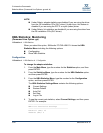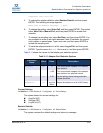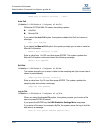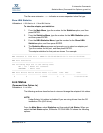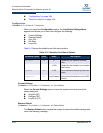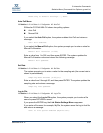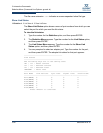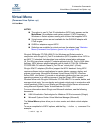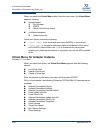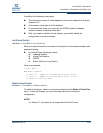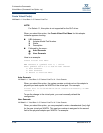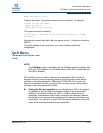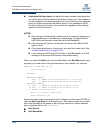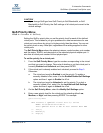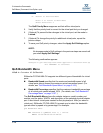
3–Interactive Commands
Virtual Menu (Command Line Option -vp)
SN0054614-00 K 3-97
Virtual Menu
(Command Line Option -vp)
14: Virtual Menu
QLogic's SANsurfer FC/CNA HBA CLI for Windows and Solaris works in
conjunction with QLogic's N_Port ID virtualization (NPIV)-capable driver. NPIV is
an ANSI T11 standard that describes how multiple unique fabric addresses
(N_Port IDs) can share a single FC adapter physical port (N_Port) in SAN fabric
topology. NPIV allows a physical adapter port to obtain N_Port IDs. SANsurfer
FC/CNA HBA CLI refers to these N_Port IDs as “virtual ports” (vPorts).
QLogic 4Gb FC adapters (QLx24xx) support the NPIV standard. Using NPIV
requires software tools or applications to create, delete, manage, deploy, and
migrate virtual ports. Microsoft’s Windows Virtual Server 2005 R2, Windows
Server 2003, and Solaris 11 provide a virtualization platform that can run guest
operating systems in an x86 environment. Use the QLogic NPIV-capable
Windows driver with QLogic’s SANsurfer FC/CNA HBA CLI to create, delete, and
manage virtual ports. You can deploy and migrate virtual ports in conjunction with
virtual machines (VMs) in your Solaris and Windows Virtual Server environment
using Microsoft System Center Virtual Machine CLI 2007.
For more information about QLogic and Microsoft solutions, see the following
documents:
HBA Virtualization Technologies for Windows OS Environments (QLogic)
Microsoft System Center Virtual Machine Manager (Microsoft)
The Virtual Menu options allow you to view, create, and delete virtual adapter
ports.
To see a complete list of NPIV options, add the flag -h to the vp command. For
example:
# scli -vp -h
NOTES:
The option to use N_Port ID virtualization (NPIV) only appears on the
Main Menu if the adapters and system support it. NPIV requires a
Windows or Solaris system running with a driver that supports NPIV.
Virtual menu options are not available for the QLE8042 adapter with
FCoE engine.
QLE81xx adapters support NPIV.
Statistics are available for virtual ports on the adapter (see “Statistics
Menu (Command Line Options -gs and -ls)” on page 3-89).




